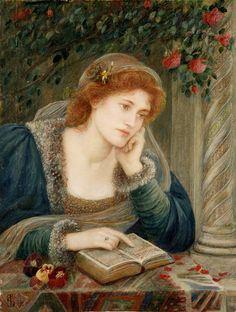
I’ve been reading quite a lot lately, but not with much success. It’s always a disappointment when you slog your way through a book, hoping that you’ll reach a point where suddenly a clever sleight of hand will be performed by the author, elevating what has been a hum-drum story into something sublime, only to find yourself reading the final chapter with a sinking heart as you become only too aware that the past week of your life has been spent reading something that was never going to be anything other than distinctly average.
I was so excited to read The Lake District Murder by John Bude, which is one of the gorgeously designed British Library Crime Classics. I thought it would have just the right mixture of a lovely setting, period detail and criminal intrigue to keep me occupied during my commute without requiring much intellectual engagement, as I can hardly be expected to try and work out the solution to a complex mystery while also trying to stay upright in a packed tube carriage. It started well; I loved plucky Inspector Meredith, whose suspicions about the supposed suicide of a garage owner lead to a murder investigation, I enjoyed the Boys-Own style voice of the author, and I was much amused by the depiction of the average life of a police officer in the 1930s, when much of the working day seemed to involve popping home for a ‘good lunch’ or smoking a pipe with one’s superior in a hotel lounge while chatting over the confidential facts of a case in full hearing of the rest of the local population. However, it soon deteriorated into a rather dull, incredibly technical exploration of just how the criminals, who are spelled out from Chapter One, managed to conduct their crime, which involves lots of measuring of time and distance and cubic square metres. This goes on for chapter after chapter, while everyone is stumped by what can possibly be happening, and I was becoming increasingly annoyed by how dense they were, because even though I am no mathematician, it really was quite obvious that they were barking up the wrong tree. By the time I got to the end of what had become a very far fetched story, I was left with the impression that if I had been alive in the 1930s I could evidently have been Head of Scotland Yard judging from the efficacy of the police force at the time, and I was also reminded that choosing a book based on how much I like the cover is not always the best way to find something that sets my heart on fire.
Disappointment number two was my second attempt at reading Toni Morrison. I’ve had Song of Solomon on my shelves for ages, as I thought I’d have to teach it at my last school but never actually did, and as I am trying to reduce the pile of unread books I own, I decided I’d take the opportunity to be able to read it for pleasure rather than with my teacher’s hat on. I studied Beloved for A Level and hated it; I found it a profoundly disturbing and unpleasant book, and while I can appreciate the skill of Morrison’s writing, I did not enjoy the process of reading her at all. I hoped Song of Solomon would be different, but sadly, it wasn’t. Once again I could admire her skill as a craftswoman, and the power of her imagination, but I was left cold by the characters and their stories, and could not feel emotionally involved in what was happening at all. The only pleasure I got from reading it was in mentally analysing the literary techniques, metaphors, Biblical allegories etc that I found as I went along, because Morrison does write beautifully and she is undoubtedly a phenomenally intelligent woman, but I struggled to find any emotional connection to the tale being told, and I didn’t particularly care about any of the characters. I think it’s because I find Morrison’s stories so deeply pessimistic that I don’t enjoy them; I know she is exploring the traumatic and unjust experiences of African Americans throughout history, so it’s hardly going to be sunshine and rainbows, and rightly so, but there is a profound misery in her books that leaves me feeling utterly depressed. These days we are surrounded by so much negativity that I suppose I just don’t want any more of it; I want to be inspired and uplifted by what I read, not pulled into the depths of despair. But that’s just my opinion, and it’s clear that plenty of people don’t feel the way I do about Morrison, otherwise she wouldn’t be as lauded as she is. It’s strange how some authors can just not work for you, as much as you can appreciate their skill. I have pressed the remarkable Marilynne Robinson on some people, convinced that they will love her as much as I do, and they have had much the same reaction to her as I do to Toni Morrison. I can’t understand it, but there it is. There is just, I suppose, no accounting for individual taste.
So, next up on my reading list is going to be something I know I’m definitely going to love. Whilst in Daunt Books the other day, I treated myself to the wonderful Alexandra Harris’ new book, Weatherland, which is an exploration of how British writers and artists have used the weather as creative inspiration over the past thousand years. I can’t wait to get stuck in; it’s a beautifully produced book, with loads of illustrations, and if it’s anywhere near as amazing as Romantic Moderns, I know I’m going to be in reading heaven. I think I deserve it after my month of disappointments!
